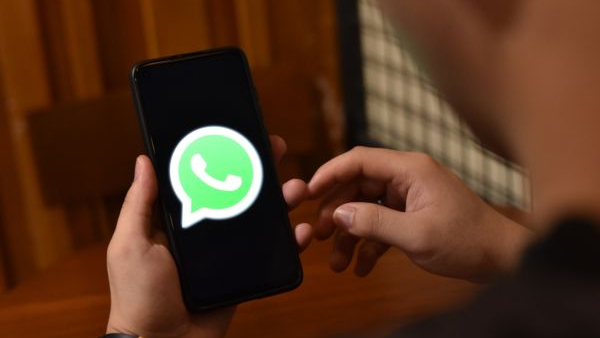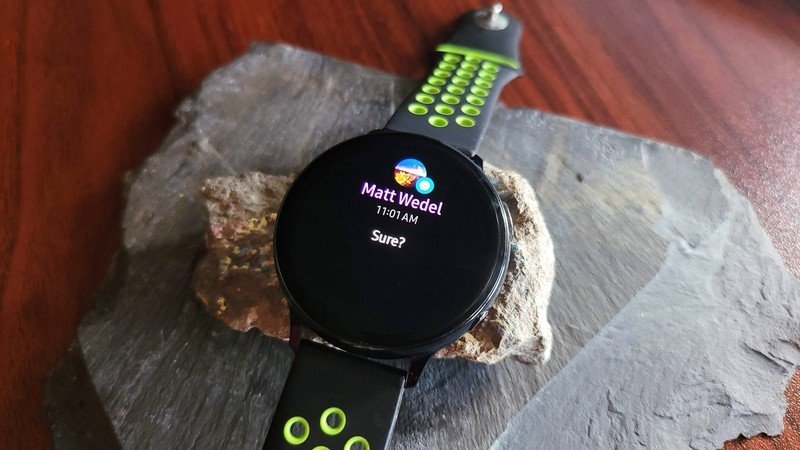jerry.hildenbrand@futurenet.com (Jerry Hildenbrand)
2024-08-28 00:22:08
www.androidcentral.com
Telegram founder Pavel Durov has been arrested in France on charges of enabling illegal transactions, failure to provide documents to authorities, complicity in possessing child sexual abuse material and in distributing CSAM, complicity in the distribution of drugs, complicity in organized fraud and money laundering.
This has naturally created controversy, with many calling it politically motivated, an attack on free speech, and oddly enough, an attack on encrypted messaging. I’m not going to wade into anything about political hit jobs or free speech, but I do have to mention one thing—the encryption argument isn’t really valid because Telegram isn’t always encrypted.
People didn’t realize that every Telegram group message is sent in plain text through a Telegram server and much of it is saved. The French government will have plenty of evidence sitting there for them to look at.
The only way to use encryption with Telegram is to have a one-on-one messaging session with someone and enable the “Secret Chat” setting. If you don’t do that, it’s not encrypted.
It’s good that people are realizing that their group chats are wide open. It also brings up a couple of other things to consider: do you really care about encrypted messaging, and if you do, which apps are better at it than Telegram?
The first question is something only you can answer, but I can give you my answer: yes, I care. I’m not worried if someone knows I texted my wife to remind her to bring home a bottle of orange juice when she’s out at the store or that anyone sees me send my grandkids a goofy picture of Snoopy on a jet ski. I just don’t want them to be able to know it unless I tell them.

You’re probably the same, and most of what you send over a messaging app is nothing you care about. But not always. There are plenty of things we do not want to share with the world, and you know which of those things apply to you. A way to protect your privacy is to only use a messaging app that is end-to-end encrypted, meaning only the intended recipient is able to decode and read it.
What’s easier to talk about is what apps are encrypted. We’ll start with the big ones — SMS and iMessage. SMS (texting) is never encrypted. Ever. Apple’s iMessage is only encrypted if everyone in the message group is using a supported Apple device. This may change with the upcoming iMessage update that supports RCS, depending on how Apple uses the RCS profile (RCS is only encrypted thanks to Google, and both companies need to cooperate). We’ll know soon enough.
That leaves two really good messaging apps that, thankfully, are encrypted no matter which brand of phone you’re using or how many people are in a group: Signal and WhatsApp. Both apps support end-to-end encryption for one-to-one chats and group messaging by default and work on every modern smartphone. You will need to install the app, of course, but there is nothing else for you to do.
While there may be other apps that use encryption properly, I can say I’m sure about these two.

There are also two apps to mention: Facebook Messenger and Google Messages. Both might be encrypted, but they might not.
Google Messages is like Apple’s iMessage: if all parties in the chat are using Google’s encrypted RCS, then it works. If not, it defaults to a regular MMS group and is not encrypted.
Facebook Messenger is a little weird. Chats are encrypted as long as everyone is using Meta’s app or a computer with the Google Chrome or Microsoft Edge browser. If someone is using Safari or Opera, for example, encryption is broken.
It’s also important to remember that social media DMs on services like X or Instagram are not encrypted.
This may or may not be important to you and only you can decide. But at least you know a little about what is and isn’t encrypted just in case.
Support Techcratic
If you find value in our blend of original insights (Techcratic articles and Techs Got To Eat), up-to-date daily curated articles, and the extensive technical work required to keep everything running smoothly, consider supporting Techcratic with Bitcoin. Your support helps me, as a solo operator, continue delivering high-quality content while managing all the technical aspects, from server maintenance to future updates and improvements. I am committed to continually enhancing the site and staying at the forefront of trends to provide the best possible experience. Your generosity and commitment are deeply appreciated. Thank you!
Bitcoin Address:
bc1qlszw7elx2qahjwvaryh0tkgg8y68enw30gpvge
Please verify this address before sending any funds to ensure your donation is directed correctly.
Bitcoin QR Code
Your contribution is vital in supporting my efforts to deliver valuable content and manage the technical aspects of the site. To donate, simply scan the QR code below. Your generosity allows me to keep providing insightful articles and maintaining the server infrastructure that supports them.

Privacy and Security Disclaimer
- No Personal Information Collected: We do not collect any personal information or transaction details when you make a donation via Bitcoin. The Bitcoin address provided is used solely for receiving donations.
- Data Privacy: We do not store or process any personal data related to your Bitcoin transactions. All transactions are processed directly through the Bitcoin network, ensuring your privacy.
- Security Measures: We utilize industry-standard security practices to protect our Bitcoin address and ensure that your donations are received securely. However, we encourage you to exercise caution and verify the address before sending funds.
- Contact Us: If you have any concerns or questions about our donation process, please contact us via the Techcratic Contact form. We are here to assist you.
Disclaimer: As an Amazon Associate, Techcratic may earn from qualifying purchases.














































![J1772 Charging Adapter for Tesla Model 3 Y S X [Safety Certified] 80 Amp 240V AC Fast…](https://techcratic.com/wp-content/uploads/2024/11/71Mii9k40bL._AC_SL1500_-360x180.jpg)














![Japanese Movie – The X From Outer Space (Uchu Dai Kaijyu Girara) [Japan BD] SHBR-263](https://techcratic.com/wp-content/uploads/2024/11/81rV3BDVGJL._SL1024_-360x180.jpg)





